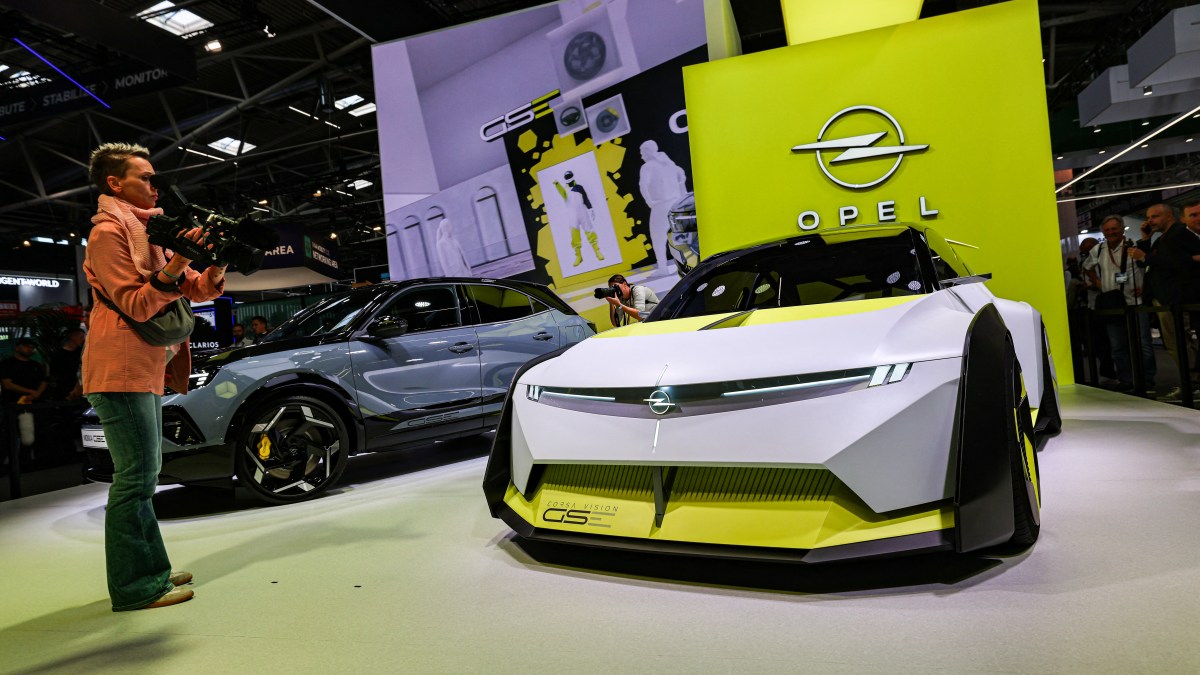Stellantis, one of the giants of the European automotive industry and owner of Vauxhall, Jeep and Peugeot, has become the latest top carmaker to abandon its target of producing only electric vehicles by 2030.
The company announced its decision at the Munich motor show where Jean-Philippe Imparato, head of the group’s European operations, said that the European Union’s aim to ban cars with petrol engines and allow only zero-emission vehicles to go on sale in the new car market from 2035 was unachievable.
Stellantis accounts for a dwindling 15 per cent of all sales across the EU, as it struggles to manage the transition away from petrol-engined cars. It is riddled with internal wrangling, which led to the abrupt departure of its chief executive Carlos Tavareslast December. In Britain its market share has plummeted to only 11 per cent, most of which are Peugeot or Vauxhall-branded cars.
Under the onslaught of South Korean and Chinese marques, brands once popular in the UK such as Stellantis’s Citroën and Fiat have less than 1 per cent of the market apiece. Last month in Britain, Vauxhall was outsold by Tesla, the leading electric-only brand.
Volvo, the China-owned Swedish carmaker, has also abandoned its 2030 all-electric pledge and Mercedes-Benz and the US carmakers Ford and General Motors have also cut back on their electric vehicle ambitions.
Stellantis’s announcement follows in the tyremarks of another of its U-turns in July when it abandoned its two-decade-long development of hydrogen fuel cell zero-emission vehicles.
Only last week Antonio Filosa, the new chief executive, demanded that the European Commission step in to subsidise continental carmakers against the onslaught of Chinese brands coming on to the market.
Commentators recognised the irony, however, in that Stellantis has taken a stake in the Chinese carmaker Leapmotor to bring cheap electric imports to Europe. In the UK alone this year, Leapmotor has delivered more than a thousand vehicles.

Jean-Philippe Imparato said the ban on new petrol-engine vehicles by 2035 was unachievable
DANIELE MASCOLO/REUTERS
Filosa reiterated his demands on Monday, saying it was vital that the commission showed flexibility on the transition to electric vehicles to protect the European automotive industry. “A strategic dialogue is very important but now it’s vital to act with urgency,” he said. “There is no time for delays.”
Filosa argued that the commission should instead support the sale of lower-emission hybrid vehicles to reduce the average age of cars on the road and take out older, more polluting petrol and diesel vehicles.
He said the commission’s goal of an all-electric future was increasing the cost of small cars, as current EU emission targets were overly stringent and costly to implement, leading to a drop in the number of cars being sold and putting companies under financial pressure.
Last year Stellantis reported a 17 per cent fall in revenues while its operating profits more than halved to €8.6 billion. Much of its problems were due to a build-up of unsold vehicles in the United States, where it trades as Chrysler and Jeep following the series of mergers over the past decade that created Stellantis.
“A European policy that encourages the replacement of older cars with new cars and a wider choice of powertrains [that is, petrol, petrol-electric hybrids and pure electric] would have a greater impact on global carbon dioxide emissions than the annual new car market does,” he said.
Ursula von der Leyen, the president of the European Commission, is meeting automotive industry leaders later this week to discuss the growing calls for a relaxation of the 2035 target.

